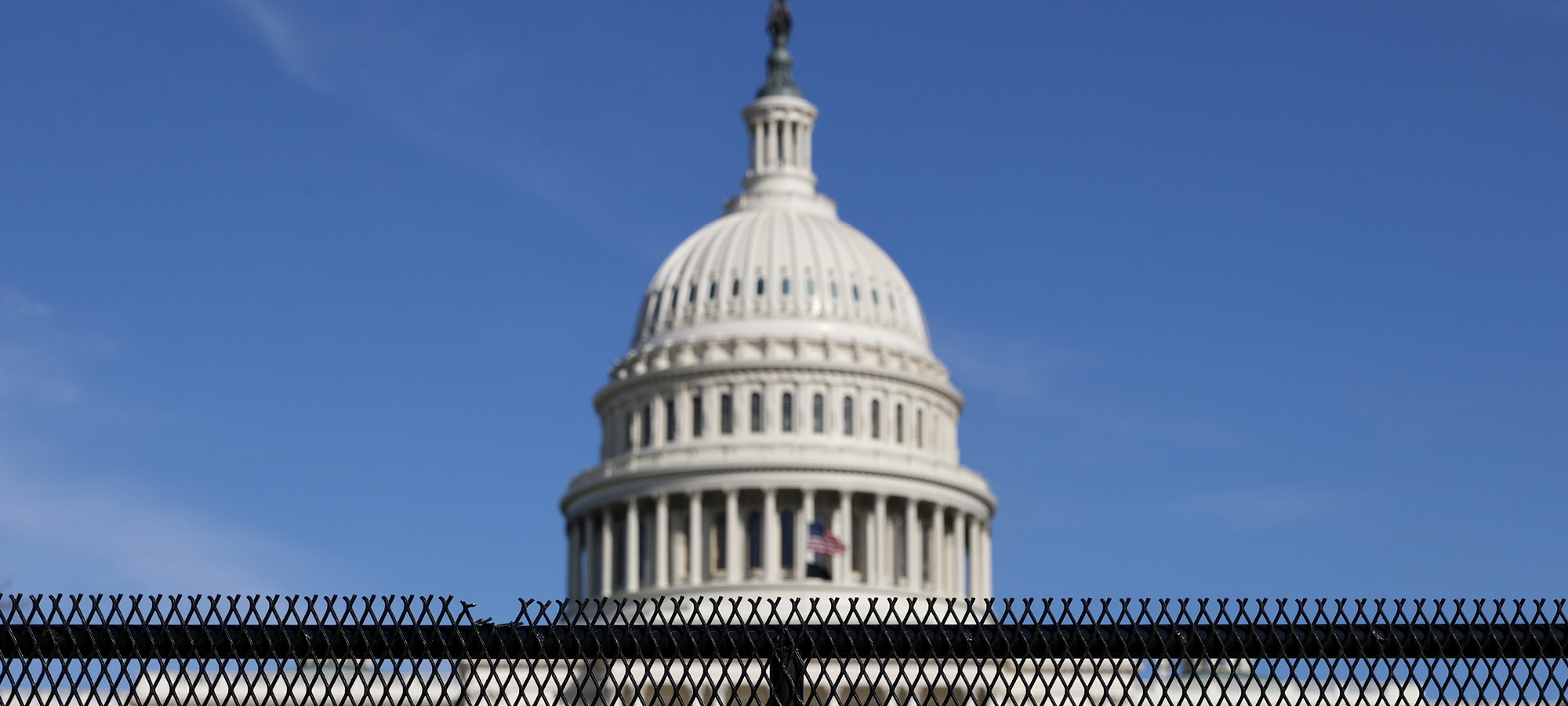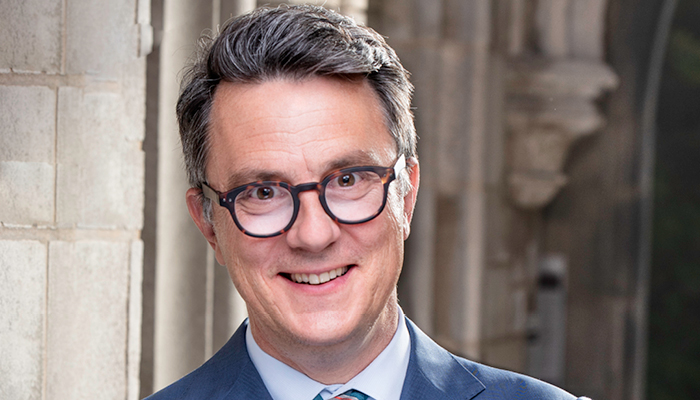
William Howell’s concern about the state of US democratic institutions was made manifest with the January 6 Capitol insurrection. (Jonathan Ernst/Reuters/Newscom)
The Center for Effective Government looks beyond policy to imagine institutions that work.
When political scientist William Howell founded the Center for Effective Government in 2019, he was already concerned about the state of American democratic institutions. Just a few months later, the COVID-19 pandemic made those worries—and the need for the new center—even more immediate.
“If you want to say we don’t have an effective government,” says Howell, “exhibit A is the government’s response to the pandemic.” For Americans who considered government dysfunction a faraway or abstract problem, COVID-19’s toll has shown that the “losses that flow from a government that can’t solve problems” can be tragically concrete. If exhibit B was needed, the disinformation campaign during and after the 2020 presidential election and the January 6 Capitol insurrection provided it.
Howell, the Sydney Stein Professor in American Politics at the University of Chicago Harris School of Public Policy and chair of the political science department at UChicago, has spent his career thinking about American democratic institutions. In eight books he’s examined the dynamics of power in our political system: “how power works, how it expresses itself, how it’s checked and limited,” especially in the US presidency.
While doing that work, Howell found himself struck more and more by how “these institutions I’m studying aren’t working especially well.” He saw a government that routinely fails to take action on large-scale problems like climate change, inequality, and immigration; a Congress whose members aren’t incentivized to solve problems for the American people; and a populace that regards Washington, DC, with distrust—for good reason.
Studying the workings of a nonworking political system came to feel insufficient. Deeply concerned as both scholar and citizen, Howell founded the Center for Effective Government (CEG), housed at the Harris School of Public Policy, to gather intellectual and practical expertise to identify concrete reforms—for instance, to political appointments, executive and congressional power, and the currently very front-and-center matter of the Senate filibuster.

Generating ideas is one-third of the center’s agenda. Its other activities revolve around uplifting those ideas (engagement) and training students, academics, and aspiring civic leaders (education). “We take scholarship and distill it so that practitioners, advocacy groups, and others engaged in this work with us are able to do something with it,” says the center’s executive director, Sadia Sindhu.
Beginning this spring, much of the work will be driven by CEG’s first class of Senior Practitioner Fellows. These leaders from the worlds of government, nonprofits, journalism, and other fields of practice spend a year at the CEG studying particular reform areas aligned with their expertise.
For one fellow, that will mean a return to UChicago: alumna Sonal Shah, AB’90, a Georgetown University economist, will look at the fault lines between national and state policy making and connections across borders and levels of government. Shah’s counterparts are national security expert Liza Goitein from New York University Law’s Brennan Center for Justice, former Republican politician and communications strategist Jennifer Horn, and Chicago-based public radio reporter Natalie Y. Moore.
The fellows will examine reform areas including separation of powers, political parties, and the role of journalism and media in democracy. Each area resonates with a question that spurred Howell to found the center: Particular policies and politics aside, do we have “a government that’s capable of solving problems or meaningfully addressing problems that the public broadly recognizes as the legitimate subject of government action?”
The CEG builds on a seven-year-old Harris Public Policy program focused on the practicalities of governing, the Civic Leadership Academy, where Howell and Sindhu first worked together. Run in conjunction with the University’s Office of Civic Engagement, the academy has trained aspiring Chicago-area leaders in nonprofits and government agencies since 2015. Its work continues as one of CEG’s education programs, alongside fellowships and research assistantships for UChicago graduate students.
As for engagement, Howell and Sindhu have already forged partnerships with local and national outlets to invite the public into the center’s conversations. Leading up to last fall’s election, the Washington Post’s Monkey Cage blog and Protect Democracy teamed up with the CEG to publish Rethinking Our Democracy, a series of democratic reform proposals by scholars and experts. The essays shared ideas for rebalancing executive and legislative power and Howell’s own pitch for a fast-track system for legislation modeled on the Trade Act of 1974, which gave the president power to send trade agreements to Congress for a quick up or down vote.
This May the CEG will hit the local airwaves with Re-imagine Chicago, a series on Chicago public radio station WBEZ. With the city’s recovery from the pandemic offering an opportunity to rethink whether Chicago has the right governing institutions, the CEG helped launch a series of conversations about ward-based elections, collective bargaining, the design of the police reform efforts, the powers of the mayor’s office, and more.
The name of the radio show hosting those conversations, Reset, captures the inherent optimism of a center studying problems that can seem huge and intractable. The governmental structures we have aren’t working, but Howell wants people to believe we aren’t stuck with them. The scholars and practitioners at the center are “digging down and excavating the institutions that govern our deliberations, and that periodically impede our ability to solve problems.” Then we can “take a hard look at them and say, ‘Hmm, maybe they should be different. How are they to be different?’”
